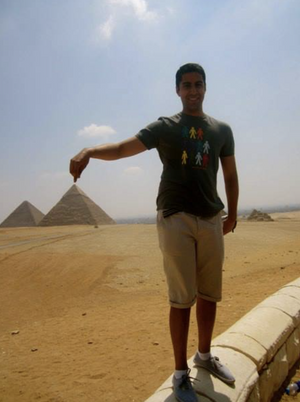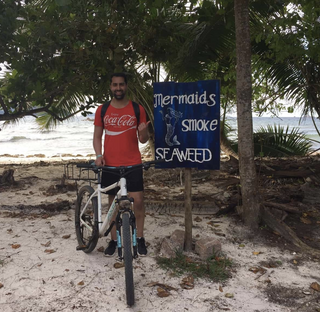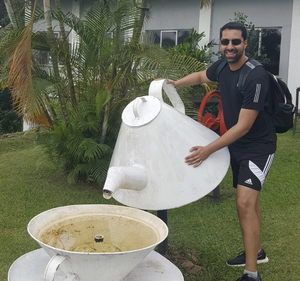Arham Qureshi – A letter to my younger self
By Arham Qureshi
ST5 Trauma and Orthopaedics, West Midlands
Dear younger me,

As you're progressing through your training, you'll realise that you've changed outwardly, but perhaps more importantly inwardly. Whilst change is inevitable, especially as you rotate between departments and hospitals with the myriad of systems, processes and protocols that they come with, it is the internal change that will be more profound and long lasting. Whilst the highest of highs that you'll experience will keep you purposeful, it is the lowest of the lows that you will in time learn to process and use and substrate to grow. Trauma and Orthopaedic training, like any surgical training, is a long road, in which you will switch lanes as you progress, but will never really come off. You'll find it hard to become accustomed to the idea that failure is inevitable, and your growing ease with this fact will come with more familiarity. But remember a few key things, and have in place a few key places/people to help you through this.
Firstly, things will not go well at times, this is a fact and cannot be helped by any amount of worrying. Processing this in a positive way will help with converting potentially negative experiences into reinforcement of your mental armour. This may take the form of discussion with colleagues, thinking through in forensic detail the events and what could have been done to avoid the outcome, or a combination of the two. Regardless of the method, it will allow you to process these events and use them as a fortification to enhance you as a surgeon.
Secondly, never compare yourself against others. While surgical training is traditionally a very competitive environment, you will always gain more in the long run by collaborating and lifting others up. Being a surgical trainee should never be at the expense of a good human being, and two are not mutually exclusive. In the end, surgery is a part of your life, but your character defines your whole life. Forgive others' transgressions and move on – remember, if it won't matter in five years, don't spend five minutes thinking about it.

Thirdly, don't lose your interests and hobbies. Being on the training pathway will be energy draining and time consuming with long days on call and in the operating theatre, but put aside one hour minimum a week to do what makes you happy and you enjoy, as a way to decompress and reset. In conjunction with this, always have your next annual leave and holiday (see picture) to look forward to as a target to get you through the long days and nights at work.
Finally, and most importantly, don't become consumed in your work at the expense of your family and friends. Whilst there may be periods where this feels like the case, good communication with your loved ones will allow you to prioritise them nonetheless. No job is worth compromising this and in the end, you will regret this the most if you let your job do this.

If all else fails, then make sure you have tea available!
Trauma and Orthopaedics has a huge amount to offer you as a career, not only through the patient you meet, but the people you work with, and if done well, you will enhance it as much as it does you!
Yours sincerely,
Older Arham
